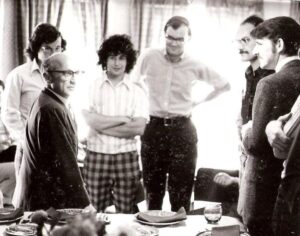
I am pleased that Jeffrey Lee raised concerns about Richard Ebeling’s discussion of “residues.” I had not commented on that piece, even though I had carefully read Richard’s essay twice. But Jeffrey’s comments reminded me that I have concerns of my own, too.
I shouldn’t blame Richard too much: when I first read it in the 1970s I found it unsettling. Albert Jay Nock‘s concept of the remnant. As Nock himself acknowledged in his famous 1936 essay, neither the “remnant” nor the “masses” can be defined in terms of class or status. Someone can be part of a genuine elite and yet be part of the masses. Similarly, someone can come from a poor family and still be part of the remnant. So, my insistence on writing exclusively for the remnant does not imply that I have to focus on any particular, well-defined readership.
When we get into the actual discussion, what Nock is basically saying is that you shouldn’t dilute or compromise your ideas to appeal to the masses. I agree with that. But even if that wasn’t Nock’s intention, thinking that you are generating ideas for a remnant can discourage you from reaching out to others. It can isolate you from anyone who already agrees with you, whether that be fellow scholars or people who you think are part of the “masses.” Fortunately, many members of the Austrian School have engaged in useful outreach to those who might be mistaken for “the masses” without compromising or diluting their ideas. Murray Rothbard is a good example, in my view.
I do remember, however, the case of a prominent Austrian scholar who refused to engage with scholars not affiliated with the Austrian School: Israel Kirzner. This may seem surprising, given my heartfelt praise of Kirzner in my first essay. But I remember clearly a story he told an audience at either the South Royalton conference in 1974 or the Hartford conference in 1975.
Kirzner said he was excited to hear that Sir John Hicks, a former Nobel Prize winner in economics, was writing an Austrian School book. Capital and Time: Neo-Austrian TheoryKirzner recounted his excited attendance at a session of the American Economic Association in New York in 1973, where Hicks was scheduled to present his ideas on the “Neo-Austrian School.” After listening to Hicks for a few minutes, Kirzner said, he concluded that Hicks did not understand Austrian economics and rose to leave before the session was over. When I heard Kirzner say that, I thought, “What a wasted opportunity!” It is true that Hicks was not an Austrian. But it would be worthwhile to talk to Hicks, a well-meaning and well-known economist who thinks he is doing Austrian economics, and who better to steer him in the right direction than the clear-minded and usually patient Israel Kirzner?
This is my Second Essay Liberty Fund series paper on the South Royalton Austrian Economics Conference, June 1974. Other contributions are available online.
I’ll be commenting on those in the next day or two.






